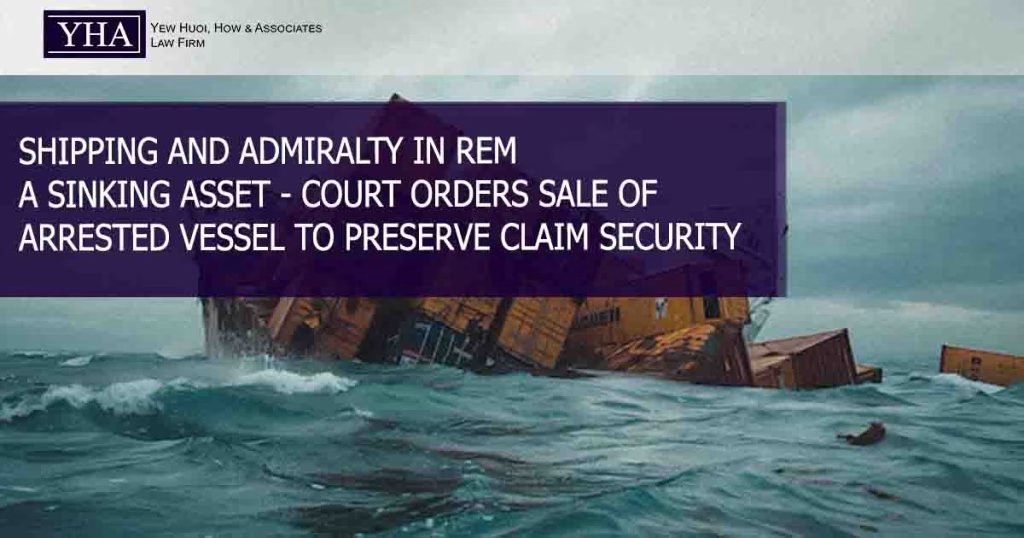1. Summary and Facts:
The case The Owners And/Or The Demised Charterers Of The Ship Or Vessel ‘Winning Loyalty’ V The Owners And/Or The Demised Charterers Of The Property Or Ship Or Vessel ‘Shi Pu 1’ [2020] 11 MLJ 603 relates to an admiralty dispute arose following a collision between the plaintiff’s vessel, Winning Loyalty, and the defendant’s vessel, Shi Pu 1. The plaintiff’s claim for damages amounted to RM1,716,660, leading to the arrest of Shi Pu 1. The defendant, unable to provide alternative security, left the vessel under arrest in open waters, resulting in rapid deterioration and increased maintenance costs. The plaintiff sought an order for the appraisal and sale of the vessel pendente lite (pending litigation) to preserve its value as security for the claim.
2. Legal issues:
i. Whether the court should grant an order for the appraisal and sale of the vessel pendente lite?
ii. Whether the defendant’s inability to provide alternative security justified such an order?
3. Court Findings:
• The High Court granted the application for a pendente lite sale. It found that the defendant’s failure to provide alternative security or maintain the vessel demonstrated a lack of financial capability.
• This rendered the vessel, described as a “wasting asset,” subject to ongoing depreciation in value, further jeopardizing the plaintiff’s claim security.
• The court emphasized that the need to preserve the security value outweighed the potential prejudice to the defendant. It rejected the argument that the application was premature, stating that such an order could be made even in the absence of a statement of claim.
4. Practical Implications:
This decision reaffirms the importance of proactive management of arrested vessels. Shipowners must recognize that courts prioritize protecting the value of the plaintiff’s claim security over potential prejudice to the defendant. The ruling serves as a reminder that failure to provide security or adequately maintain an arrested vessel may result in its judicial sale, especially where its value is rapidly diminishing. This case reinforces the principles of maritime law in ensuring equitable treatment for all parties while safeguarding the economic integrity of claims in admiralty disputes.
5. Reference Case and Legislation:
• The Owners and/or The Demised Charters of The Ship or Vessel ‘WINNING LOYALTY’ v The Owners and/or The Demised Charterers of The Property or Ship or Vessel ‘SHI PU [2020] 11 MLJ 603
• The ‘Myrto’ [1978] 1 Lloyd’s Rep 11 (CA)

